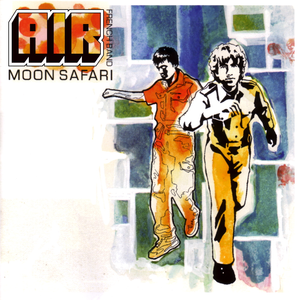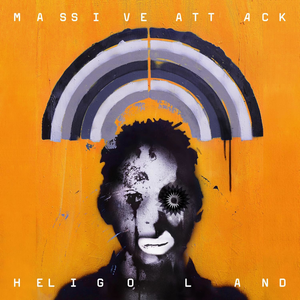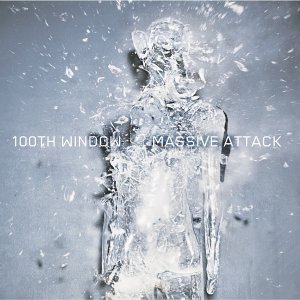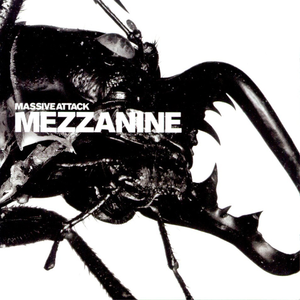On listening to Moon Safari, I feel like it is representative of the watershed moment in the late 90s where the very localised Bristol-based trip hop scene was adopted into the more mainstream friendly, broader downtempo genre. A lot of the grimier, more dangerous soundscapes that characterised the work of Massive Attack, Portishead and UNKLE were toned back and replaced with looser, jazzier samples that fitted better to the Ibiza clubs that were playing this music in their chill-out rooms. However Moon Safari maintains a weirder edge that lost just a year later with the likes of Moby and Groove Armada releasing their very successful and very palatable downtempo tunes (Porcelain and At the River respectively).
Similarly, as you would expect from a French act, there is certainly a French pop flair to Moon Safari compared to their English contemporaries. It is a very gentle, smooth and sensual record; completely eschewing the more neurotic song topics and musical elements that the trip hop scene was known for. Not a single drug reference or scratchy drum breakbeat in sight. Instead elegant strings and smooth saxophones occupy the mix. The opening cut, Le femme d'argent, swoons in with a gentle conga rhythm, a smooth, funky bassline and and a jazzy keyboard riff. There's no vocals, no real melody, just loose noodling set against the tight rhythm section. A simple string backing and bubbling effects get introduced as the song progresses, giving a little more depth and progression to the mix. Its a very suave and sophisticated sounding tune. Sexy Boy on the other hand is much more passionate and sensual. The whining guitars and intimate female vocals give off a much more urgent and seductive vibe.
All I Need featuring Beth Hirsh definitely feels the closest to British trip hop with its very stripped back production and moody, yearning vocal performance that with a passing listen you could easily mistake for Portishead's Beth Gibbons or Elizabeth Fraser who featured on many a trip hop tune. You Make It Easy also features Hirsh on vocals, which sounds very Portishead if I say so myself. It's a good tune and a highlight of the second half. Talisman is a low key, bluesy number which again feels quite moody. The strings start to ramp up towards the end of the song which adds some tension and drama to the track. Ce matin-là on the other hand, is the most chilled out song on the planet with its strummed acoustic guitar and gentle trumpet motif. It sounds like an M&S summer food advert.
Not everything is a winner though. Kelly Watch the Stars is a bit of a departure for the record, with it's squelchy synths and robotic vocals sounding more Daft Punk than downtempo. It's not bad but it doesn't really retain the relaxed and elegant vibe of the tracks that proceed it. Similarly, the robotic vocals on Remember are more distracting than they add to the atmosphere of the song. On the whole, the back half of the album feels quite safe and unchallenging. It does start to sit in the background, which I get is the point; but when I give it my entire focus I'm left wishing the songs just went a little further and made more of an impact.
On the whole, Moon Safari is a good album and I can see the acclaim it received mostly off the back of the first three tracks. It certainly highlights the difference between the influence and 'importance' of a record, and the overall impressiveness of a record from front to back. Well worth checking out if you like chill electronic music, but don't expect it to be a profound boundary pushing experience.
Top Tracks: Le femme d'argent, Sexy Boy, All I Need, You Make it Easy, Ce matin-là
7/10






